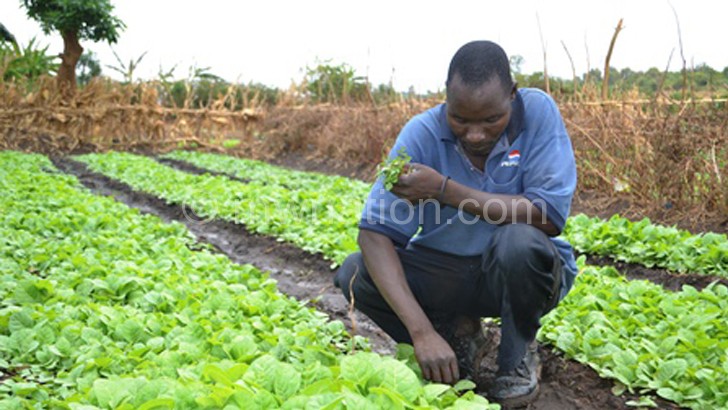Tobacco growers recount IPS benefits
As the debate on the merits and demerits of auction and contract farming or Integrated Production System (IPS) of growing tobacco rages on, growers in Mzimba and Rumphi have thrown their weight behind IPS.
They said in interviews last week during a tour in Mzimba and Rumphi that IPS—adopted by government in 2012 in which buyers offer growers inputs, extension services and loans—has changed their lives for the better.

Initially, the plan was to have 80 percent of all the tobacco sold through IPS with the remaining 20 percent under the traditional auction system.
But last year, about 84 percent of the leaf was sold through IPS with the remaining sold under auction system, according to Tobacco Association of Malawi (Tama).
However, critics of the system such as Farmers Union of Malawi and AHL Group argue that IPS is prone to abuse as some buying companies take advantage of the farmers’ illiteracy to exploit them.
But several farmers who got loans for buying farm inputs and pesticides from JTI Leaf Malawi in Mzimba and Rumphi last year said IPS has benefited them more than the auction system.
A farmer from Bolero in Rumphi, Patrick Nyirenda, said he has built three houses, a shop and bought three vehicles with proceeds from the green gold on his 10-hectare piece of land.
He said: “Rains last year were not favourable. My produce decreased by half and I produced 100 bales of tobacco worth K5.6 million. After returning the loan and other expenditures, I remained with K4 million as a profit.
“A year before, I had 200 bales and realised K13 million. My profit was K8 million. I have been making similar profits for the past years.”
His colleague, Gung’u Kaunda from Kalama in Mzimba, said IPS has brought back hope among farmers at a time the tobacco industry, which brings in 60 percent of foreign exchange earnings and contributes 13 percent to the national economy, was falling.
“Under IPS, the industry is back on track. We are able to get loans through farm inputs; we have access to extension services; we have a ready market for our produce and we have a chance to negotiate good prices,” he said.
JTI leaf technician for Mzimba North-West, Temwa Mfune, said apart from offering loans, the company encourages growers to plant trees to reduce deforestation in tobacco farming areas.
She said farmers are also encouraged to diversify their farming to address food shortages by planting other crops such as maize and groundnuts.
But in an earlier interview, Farmers Union of Malawi (FUM) president Alfred Kapichira Banda urged government to end IPS, saying the contracts which growers enter into are not binding.
“IPS should be abolished because farmers are not benefiting. Even if farmers are given inputs under IPS, the contracts they sign have a lot of secrecy,” he said.
Last year, AHL Group chief executive officer Evans Matabwa said Malawi rushed to adopt IPS model from Brazil when the structure of the tobacco industry in the two countries is different.
He said: “In Brazil, where they do IPS hundred percent, agriculture is probably number four in terms of ranking and tobacco comes number eight if not nine.”





